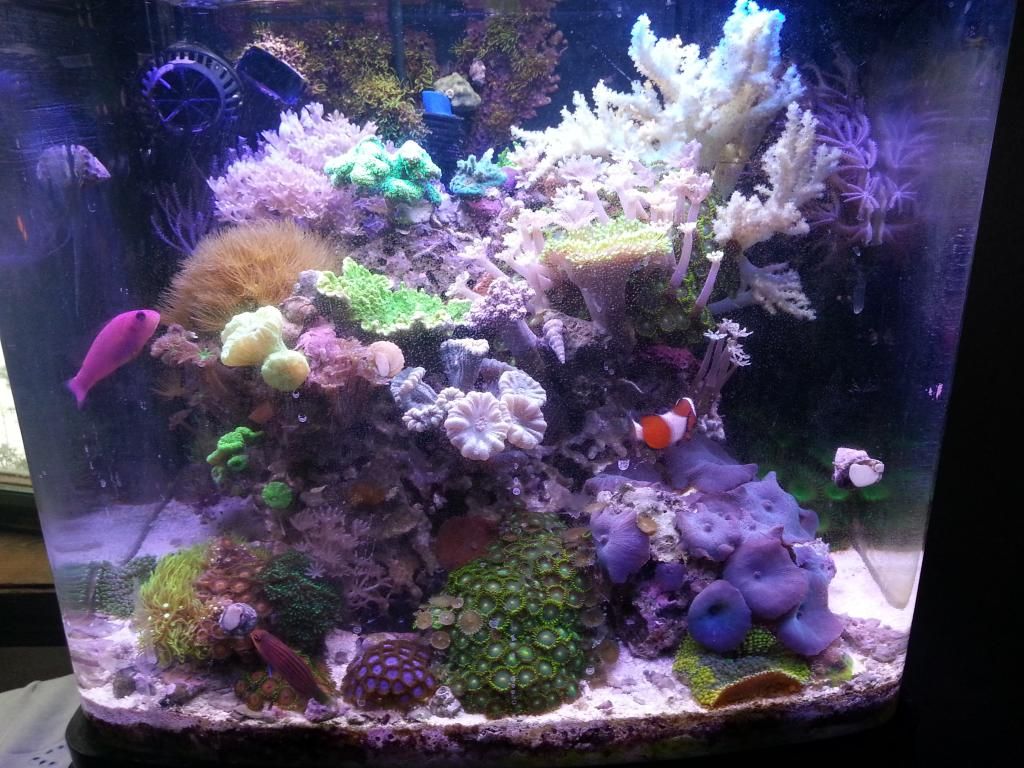Neil - sorry about that. "two part" refers to a two stage dosing product, for calcium and alkalinity. Most "two-part" dosing products refer to an "A" or "B" and often include trace elements in addition to what is used to raise or maintain alkalinity or calcium. Most "two-part" dosing products are designed to be dosed at equivalent amounts, to maintain the ionic balance in salt water. The problem when you use a "two-part" dosing product to change only one variable (in your case you were dosing alkalinity at a much higher rate than the calcium) is that it also doses other elements at a much higher rate as well, which is often an unknown from the manufacturer.
I personally do not use Red Sea's reef foundation program, but their program is a bit different than most others, in the fact that it's really focused on all three elements (Alk, Calc and Mag) in a "three-part" as opposed to the "two-part" from most other manufacturers. Based on what I could find online, their program looks like it is designed to be used independently to adjust variations in each of the "big three" - alk, calc and mag. I was a bit sleepy this morning with my early-morning reply, so my apologies if I caused some confusion.
The issue in your tank looks like it was out-of-balance, which is most likely caused by the dosing you were doing. The recommendations you have been receiving from several members all are driving towards getting your tank back in balance, and then determining the daily uptake that is occurring with your current stock. If you continue to dose during this period (particularly if you continue to dose at the incorrect amounts), then this makes the problem harder to diagnose and cure. There are a lot of variables, and the first one that we can remove is the potential for an error being made in the amount that is dosed daily. So - if you add nothing to the tank, what is occurring is that the corals are using the elements daily at some unknown rate. Also, because your tank was out of balance, if a precipitation event did occur (which it sounds like it did), then we need to let the water find a balance back to naturally occurring variables, and not artificially created ones.
At the same time - we have to be careful. SPS corals are particularly sensitive to large changes in alkalinity in short periods of time. All corals are sensitive to massive changes of calcium, but your tank as it stands today is well within a normal "range" on calcium so this is not as big of a concern. We want to keep a close eye on that alk number, with the goal of keeping it at a small fluctuation throughout the day. To do this - you want to test every day at the same time, using the same test kit. That way you can measure the daily uptake and match the dosing of that element to that daily uptake.
Water changes introduce another variable. The salt mix you use is likely going to be at amounts different than what you find in your tank. Ideally - they would be the same. However, different types of coral have different preferred levels of these elements for "ideal" growth. We are creating artificial environments in our tanks anyway, so you will find all kinds of different opinions on what is ideal. Plus the mix of coral and all kinds of other variables in your particular tank will likely define your "ideal" levels. Most reefers target an alk level around 9, as it is the most "forgiving" level that allows for mistakes and other changes, and is close to the levels that occur in natural sea water. Some that are SPS dominant, for example, target as high as 13 as they are pushing for high growth and color in that particular coral. The challenge with 13 - it requires inflated amounts of magnesium and calcium, and is close to saturation levels, so the opportunity for a precipitation event to occur and radically change your numbers (and with the resulting negative impact to your coral) is much higher.
So when you do a water change, you are introducing another variation in the levels in your tank, as the water you are adding is most likely going to be different than what you are removing. The percentage of the change is another variable. That's why Oxy recommended that you target maintaining the levels that you have immediately following your normal water change routine. If you can maintain that level consistently and daily, you will have a very stable environment that will help your coral recover and grow. That environment may be different than what the "recommended" levels are from Red Sea.
Now - I am far, far from an expert, but this is what I've come to understand on a very basic level from being in the hobby for a couple of years. Others have a much greater understanding and experience than I do on these things, so please correct me if I am wrong. I hope this post is useful for you.

